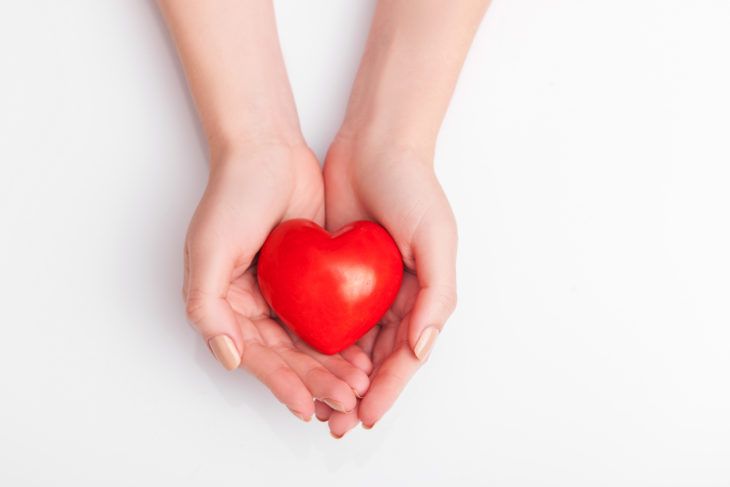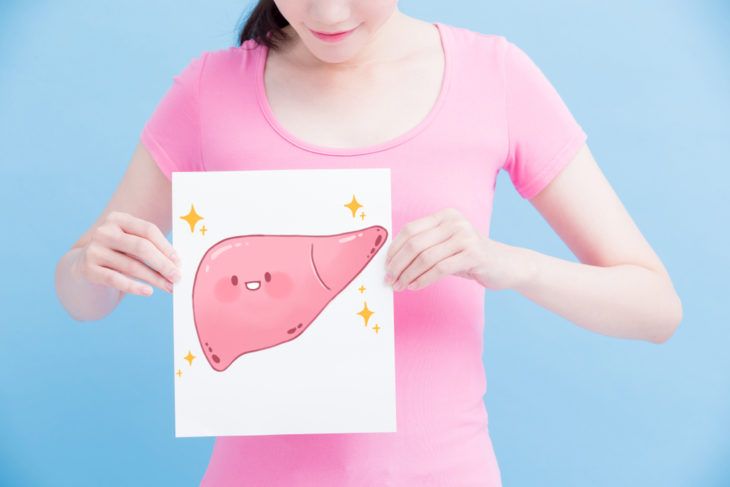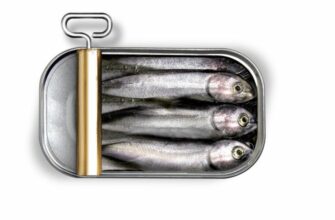Sugar is hard to escape. Even if you’re one of those people who don’t have a “sweet tooth” and do a good job at avoiding sugary indulgences, you’re most likely still consuming a lot of sugar because it’s so prevalent in our food. According to a report by the University of North Carolina, the average person consumes about 300 calories from added sugars a day, and 20 percent of Americans exceed 700 calories from added sugar on a daily basis! This is because sugar is not only in things like cakes, cookies, and soda — it’s also in salad dressings, pasta sauces, and even a seemingly healthy snack like yogurt.
Since sugar is so prevalent and has such a profound effect on our body, when we stop eating it there are many things that happen to our body. At first, it will be difficult as the body goes through some mild withdrawal symptoms. But after that, there are several amazing health benefits that occur when a person cuts sugar from their diet. Here’s a look at 14 of them…
1. Reduced Food Cravings
You’ve probably heard before that sugar is addictive, hence why it can be so hard to cut it out of our diet and why our body tends to have a negative response to the withdrawal at first. Sugar is designed to cause our bodies to want more and crave it. When we eat a lot of sugar it sends our blood sugar levels on a roller coaster of ups and downs making it hard to manage. “The lows drive you to drastically increase your blood glucose and, as a result, you’re more likely to crave higher sugar foods which keep you riding the sugar roller-coaster,” says registered dietitian Jenna Hope to Cosmopolitan. It’s not uncommon for the body to crave these highs and lows. Quitting sugar altogether means getting off the sugar roller-coaster and reducing those unhealthy food cravings. (To learn how to combat these cravings, check out this article on Sweet Tips for Beating Sugar Cravings).
2. Your Memory Will Get Better
You probably are more likely to blame feeling foggy and sluggish on a lack of sleep, but in reality, it’s sugar that might be to blame. According to an animal study done by UCLA, a diet high in sugar can affect memory and learning. “Over time, eating lots of sugar may actually damage communication among your brain’s cells, the study shows,” writes Prevention.
If you find that you’re having trouble thinking clearly or being on top of your game mentally, try skipping the sugar. To learn more, check out this article on the Negative Effects of Sugar on the Brain.
3. Lower Risk of Heart Problems
Eating foods that are good for our heart is super important…for obvious reasons. Unfortunately, sugar is not one of them. In fact, Health.com cites research that shows sugar can have a hugely negative impact on our cardiovascular system. A study published in 2014 found that people who consumed anyways from 17 percent to 21 percent of their daily calories from sugar were at a 33-percent higher risk of dying from heart disease than those who didn’t consume that much sugar. To ensure a long, happy and healthy life, start cutting back on sugar.
“Added sugar chronically raises [hormone that regulates glucose in the blood] levels, which activates the sympathetic nervous system, increasing blood pressure and heart rate,” says James J. DiNicolantonion, PharmD, a cardiovascular research scientist at St. Luke’s Mid-Atlantic Heart Institute in Kansas City, MO to Prevention. “Within a few weeks’ time, you might expect to see a 10-percent decrease in LDL cholesterol and a 20 to 30-percent decrease in triglycerides.”
4. Your Skin Will Clear Up
One of the most obvious physical signs of cutting sugar from your diet is that your skin will clear up! Good riddance to all that acne! The reason sugar causes acne is that sugar is an inflammatory food and Prevention points out that acne is a result of systemic inflammation. A study published in the American Journal of Clinical Nutrition found that “when non-soda-drinkers consumed one 12-ounce can a day for 3 weeks, their inflammation levels increased by 87 percent,” writes the source.
In addition to clearing up any acne, eating less sugar is also a great way to prevent wrinkles and aging skin. Collagen and elastin are two important proteins that are responsible for keeping the skin looking young, but sugar works to destroy these proteins. “Sugar causes glycation, a process by which the sugar molecules bind to and deform the collagen and elastin in our skin,” says Anthony Youn, MD, a plastic surgeon in Troy, Michigan, and author of The Age Fix: A Leading Plastic Surgeon Reveals How To Really Look Ten Years Younger to Reader’s Digest.
All it takes is 14 days without sugar and your skin will start glowing. “Giving up (or reducing) the amount of sugar you eat can also reduce glucose and [the hormone that regulates glucose] in your bloodstream, reducing chronic and acute inflammation linked to aging,” says Dr. Youn to the source.
5. You’ll Finally Lose the Weight
According to the Harvard School of Public Health in Boston, the average person eats around 22 teaspoons of added sugars a day. This amounts to about 350 calories! Reader’s Digest talked to Leah Kaufman, MS, registered dietitian at NYU Langone’s Weight Management Program who explained how sugar can be addicting, but if we stop eating it, it can help a person lose weight. “Sugar can be addicting, and when we decrease the amount that we eat, it also stops cravings, so we consume fewer calories and lose weight,” says Kaufman. It seems like this is that magic diet plan we’ve all been waiting for!
Not only is it addicting, but endocrinologist David Ludwig, MD, a professor of nutrition at the Harvard T.H. Chan School of Public Health, and coauthor of Always Delicious, told Health.com that sugar causes high levels of insulin which “puts fat cells all over your body into calorie-storage overdrive.” He describes it as Miracle-Grow for fat cells. “It’s just not the sort of miracle you want happening in your body.”
Even more so, sugar doesn’t work like other more nutritious whole foods by telling the body when it’s full. “When you eat refined sugar, your body may not get the signal that you’re full, causing you to consume too many calories and gain weight,” adds Megan Gilmore, a certified nutritionist consultant in Kansas City, Kansas, and author of No Excuses Detox: 100 Recipes to Help You Eat Healthy Every Day to Reader’s Digest. “When you replace sugar with nourishing whole foods, your hormones will naturally regulate, sending signals to the brain when you’ve eaten enough.”
6. No More Mood Swings
This one might not seem like it’s coming for a while after quitting sugar because at first, cutting sugar has the opposite effect this! One of the first symptoms of sugar withdrawal is moodiness, but once you’ve fully kicked the bad habit, you’ll notice that your mood is much more regulated. You’ll begin to feel better than ever.
We will get into this more later on in the article, but one of the reasons these mood swings will disappear is because sugar has been linked to depression and sadness. “Sugar has been shown to suppress a hormone called BDNF which is required to produce new neurons. Individuals who are susceptible to low mood have lower BDNF, and so the suppression of this from sugar may further enhance low mood and depression,” says registered dietitian Jenna Hope to Cosmopolitan. For these people especially, cutting out sugar will help return their mood to normal.
Prevention cites a study done by Columbia University which found that women “who eat a diet high in added sugars and refined grains are more likely to experience anxiety, irritability, and mood swings.”
7. Your Sleep Will Improve
Do you find it difficult to fall asleep and stay asleep? If you’re tossing and turning all night long, it might be because you’re eating too much sugar. Those crashing lows from sugar can leave a person feeling sluggish during the day and in need of a nap. Prevention also points out that added sugars trigger a release of the hormone cortisol, which interferes with sleep.
A diet full of sugar can also affect how the brain releases melatonin, the hormone that regulates sleep-wake cycles. “A high sugar intake will delay the release of melatonin in the brain, which is essential for the homeostatic control of sleep,” says Hope to Cosmopolitan. “Research suggests that poor sleep may lead to an impaired blood glucose balance which stimulates your desire to consume more sugar.”
8. Lower Risk of Diabetes
Sugar is notorious for causing harmful spikes in blood sugar, and obesity and thus, linked to diabetes. If cutting sugar helps a person shed weight (as we previously mentioned), this means cutting sugar in your diet can also help lower the risk of diabetes. But sugar is tied to diabetes in another way other than weight gain.
Health.com explains that a diet with lots of fast-digesting carbohydrates like sugar can affect how much the pancreas releases the hormone that regulates glucose in the blood. Excessive demand on the pancreas can cause the hormone-producing cells to malfunction and eventually lead to diabetes, says David Ludwig, MD, to Health.com.
9. Increase Energy
If we get into a mindset that food is fuel for the body then it might change what foods we eat. Foods that are empty in calories and nutritional value aren’t going to fuel the body very far and this is exactly what sugar is — empty calories. Health.com also explains that added sugars are simple carbohydrates which means they are digested fast and go into the bloodstream quickly, so while the sugar will spike your blood sugar levels, it’s also going to cause a crash. Eating foods that are high in sugar all day is going to create this energy roller coaster.
Of course, no one lives solely on sugary foods, and believe it or not, that’s not what we’re talking about! You’d be surprised at what foods contain hidden added sugars. Even if you think you’re being healthy by eating a salad for lunch, that salad dressing has lots of sugar in it. While it might be a struggle at first, try to only eat whole-natural foods, even when snacking.
For example, a great healthy snack is a handful of almonds. “When you eat foods high in protein and healthy fat instead, such as a handful of almonds, they’ll supply you with a steadier stream of energy that lasts longer,” says Diane Sanfilippo, a nutrition consultant and author of The 21-Day Sugar Detox Daily Guide to Health.com.
10. Improved Mental Health
This one is somewhat linked to mood swings as it’s related to our mood and overall mental wellbeing. Even though we use sugary sweet treats to make ourselves feel better, it actually has the opposite effect. Consuming large amounts of sugar has been linked to increased rates of depression, says Gilmore to Reader’s Digest. “This may be due to the fact that sugar can lead to chronic inflammation, which impacts brain function.” Reader’s Digest cites research from a 2015 study published in The American Journal of Clinical Nutrition which found women who consumed foods with more sugar (including added sugars) were higher on the glycemic index and more likely to be depressed than women who ate fewer foods with sugar.
There’s also a link between sugar and anxiety. “While sugar intake isn’t necessarily a cause of anxiety, the constant blood sugar rollercoaster and release of adrenaline and [a hormone that regulates glucose in the blood] may contribute to the feelings of anxiety in those who already suffer,” says Hope to Cosmopolitan. “It’s important to note that changing your diet won’t necessarily cure anxiety but it can help to reduce some of the symptoms associated with it.”
11. Improved Gut Health
This one is purely due to the fact that anyone who is not eating added or processed sugar, is instead eating foods that are healthy and rich in dietary fiber, like fruits and vegetables, nuts, seeds, and whole grains, all of which are great for the gut. “These foods contribute to a healthy gut function as they help to increase the number of healthy microbiota in the gut. In turn, this helps to remove unwanted toxins as well as increasing frequency of bowel movement and reducing transit time,” says Hope when talking to Cosmopolitan.
12. Better Liver Function
Another organ (like the heart) that greatly benefits from less sugar is the liver. “The consumption of excess sugar (particularly in the form of fructose) and sugar-sweetened beverages is heavily linked to non-alcoholic fatty liver disease,” says Hope to Cosmopolitan. “Excess fructose cannot be metabolized by the liver without glucose, so the fructose gets stored around the liver. Limiting your sugar intake will help to reduce the risks of non-alcoholic fatty liver disease.”
13. You’ll Live Longer
Obviously, if we eat foods that are bad for our health it will have an impact on our physical health and thus, our life span. Sugar can be damaging in so many ways from diabetes, to high blood pressure, obesity, and heart disease — all of these life-threatening conditions have been linked to sugar consumption. “When glucose spikes after eating sugary food, our [a hormone that regulates glucose in the blood] increase to compensate for it, and this activates a part of our nervous system which increases blood pressure and heart rate,” says Leah Kaufman, MS, registered dietitian at NYU Langone’s Weight Management Program when talking to Reader’s Digest.
Sugar is also responsible for increasing the number of unhealthy blood fats, also known as triglycerides in the blood. Someone with high levels of triglycerides is at an increased risk for heart disease and stroke. The source cites a study conducted in 2014 which found that “those who ate the most added sugar were most likely to die from heart disease than their counterparts who consumed the least,” writes Reader’s Digest.
14. Stronger Immune System
Sugar causes chronic inflammation and weakens our immune system so that we become victims of the cold and flu more often. So what would happen if we were to stop eating sugar entirely? “You’re likely to have fewer sniffles year-round, and it may also help to reduce your allergy and asthma symptoms too,” says Gilmore to Reader’s Digest.
The source cites a study published in the American Journal of Clinical Nutrition which found that people who ate 100 grams of sugar affected how well the body’s white blood cells were able to effectively kill bacteria by as much as 50 percent. This effect can last for 5 hours.

 Home
Home Health
Health Diet & Nutrition
Diet & Nutrition Living Well
Living Well More
More
























